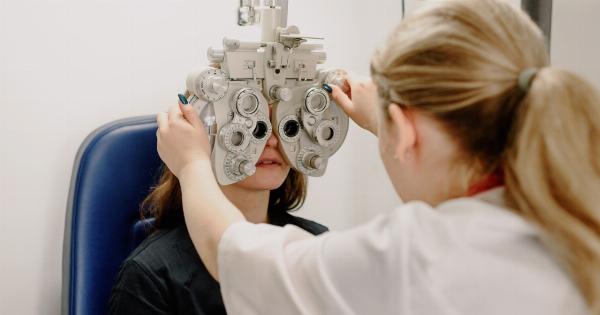Cognitive impairment, thyroid dysfunction, and atherosclerosis are prevalent health conditions that can significantly impact a person’s quality of life.
Early detection and screening for these conditions are crucial for timely intervention and management. Fortunately, advancements in medical technology have paved the way for fast screening tools that can aid in the early detection of these conditions.
In this article, we will explore some of the fast screening tools available for cognitive impairment, thyroid dysfunction, and atherosclerosis.
Cognitive Impairment Screening Tools
Cognitive impairment refers to a decline in cognitive functioning, including memory loss, difficulty concentrating, and impaired decision-making abilities.
Early screening for cognitive impairment is vital for the early identification of conditions such as Alzheimer’s disease and dementia. Several fast screening tools are available to assess cognitive function:.
1. Mini-Mental State Examination (MMSE)
The MMSE is a widely used screening tool for cognitive impairment. It assesses various cognitive domains, including orientation, memory, attention, language, and visuospatial skills.
The MMSE consists of a series of questions and tasks, and scores range from 0 to 30, with lower scores indicating greater impairment.
2. Montreal Cognitive Assessment (MoCA)
The MoCA is another widely used screening tool that evaluates multiple cognitive domains. It provides a more extensive assessment of cognitive function compared to the MMSE, allowing for the detection of mild cognitive impairment.
The MoCA assesses various domains, including memory, attention, executive functions, language, visuospatial skills, and orientation.
3. Clock Drawing Test (CDT)
The CDT is a simple and quick screening tool that assesses visuospatial skills and executive functions. The test involves asking the individual to draw a clock face and set the time to a specific hour.
The quality of the drawing and accuracy in setting the time can provide insights into cognitive impairment.
Thyroid Dysfunction Screening Tools
Thyroid dysfunction refers to the improper functioning of the thyroid gland, which can lead to various health issues. Early detection of thyroid dysfunction is critical for appropriate treatment and management.
Here are some fast screening tools for thyroid dysfunction:.
1. Thyroid Stimulating Hormone (TSH) Test
The TSH test measures the level of thyroid-stimulating hormone in the blood. Elevated TSH levels often indicate an underactive thyroid (hypothyroidism), while low TSH levels suggest an overactive thyroid (hyperthyroidism).
The TSH test is a fast and reliable screening tool for thyroid dysfunction.
2. Free Thyroxine (FT4) Test
The FT4 test measures the level of free thyroxine in the blood. Free thyroxine is the active form of thyroxine hormone, and abnormal levels can indicate thyroid dysfunction.
Alongside the TSH test, the FT4 test aids in the accurate diagnosis of thyroid diseases.
3. Thyroid Ultrasound
A thyroid ultrasound is a non-invasive imaging technique that can help identify structural abnormalities in the thyroid gland. It is particularly useful for detecting nodules, cysts, or enlargement of the thyroid.
Ultrasound can supplement blood tests to provide a comprehensive assessment of thyroid health.
Atherosclerosis Screening Tools
Atherosclerosis is a condition characterized by the buildup of plaque in the arteries, leading to restricted blood flow and an increased risk of heart disease and stroke.
Early screening for atherosclerosis is crucial for implementing preventive measures. Let’s explore some fast screening tools for atherosclerosis:.
1. Carotid Ultrasound
Carotid ultrasound is a non-invasive imaging technique that assesses the carotid arteries, which supply blood to the brain. It can detect the presence of plaque and measure the thickness of the arterial walls.
Carotid ultrasound helps identify individuals at risk of stroke or other cardiovascular diseases.
2. Ankle-Brachial Index (ABI)
The ABI is a simple and non-invasive test that measures blood pressure in the arms and ankles. It compares the two measurements to determine if there is reduced blood flow to the legs due to arterial blockages.
A low ABI indicates peripheral artery disease, a common manifestation of atherosclerosis.
3. Coronary Calcium Scan
A coronary calcium scan is a specialized imaging test that uses computed tomography (CT) to measure the amount of calcium present in the coronary arteries.
Calcium deposits in the arteries are indicative of atherosclerosis and can help assess an individual’s risk for heart disease.
Conclusion
Early screening for cognitive impairment, thyroid dysfunction, and atherosclerosis plays a vital role in timely intervention and management.
The fast screening tools discussed in this article, such as the MMSE, TSH test, and carotid ultrasound, provide healthcare professionals with valuable insights into these conditions. By detecting and addressing these health issues early on, individuals can receive appropriate treatment and enhance their overall well-being.




























